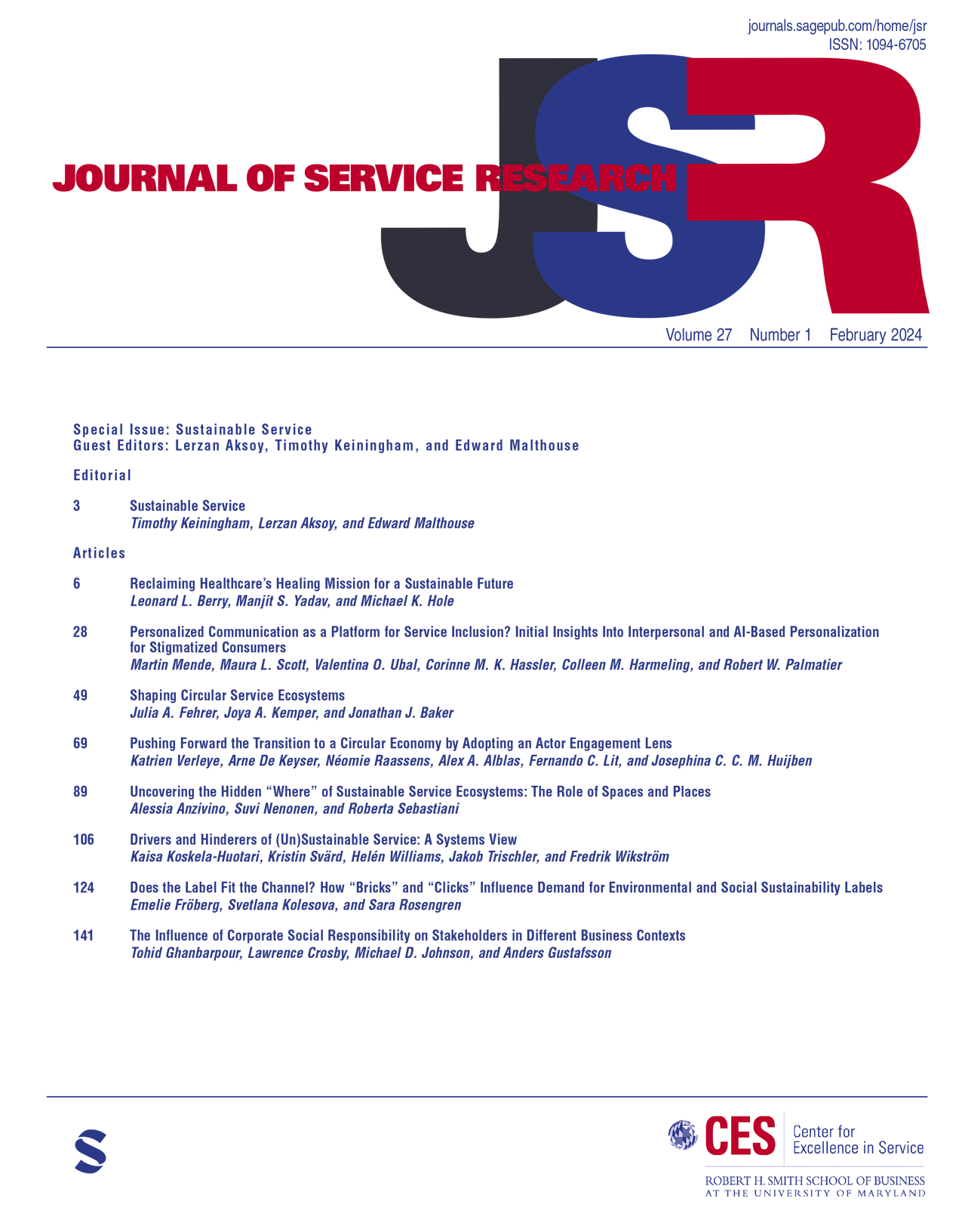企业服务系统智能化之路
IF 8.6
2区 管理学
Q1 BUSINESS
引用次数: 0
摘要
随着智能技术以前所未有的速度发展,公司正在大力投资以提高其服务系统的智能性。为了支持这些努力,从业者和研究人员呼吁指导如何在做出明智决策时考虑客户的复杂需求和愿望。这项研究采用了公司的观点来调查如何以及为什么要做出关于聪明的决定。它考察了企业如何配置服务系统的智能,并通过价值主张向客户传达预期价值。至关重要的是,它进一步揭示了为什么公司做出这些决定是基于他们关于调整资源以为客户创造价值的推理——即公司的价值创造逻辑。我们对多个行业部门的多个案例研究进行了分析,揭示了服务系统智能化的许多途径。这些路径被标记为谨慎、定制、优质和平衡路径,每个路径都需要智能配置和客户价值主张的特定组合,并以特定逻辑为基础。一项更细致的分析表明,当企业瞄准不同的客户群体时,可能会同时追求多种途径,并指出企业的特点可能会如何塑造它们走向聪明的途径。由此产生的框架可以作为管理人员和顾问在做出重要明智决策时的指导工具。图形抽象本文章由计算机程序翻译,如有差异,请以英文原文为准。
Pathways to Service System Smartness for Firms
As smart technology develops at an ever-increasing pace, firms are investing heavily in boosting the smartness of their service systems. To support these endeavors, practitioners and researchers call for guidance on how to account for customers’ complex needs and wants when making smartness decisions. This research adopts the firm’s perspective on investigating how and why decisions on smartness are undertaken. It examines how firms configure the smartness of service systems and communicate the intended value to customers through value propositions. Critically, it further unravels why firms make these decisions on the basis of their reasoning about aligning resources to create value for customers—that is, the firm’s value creation logic. Our analysis of multiple case studies across several industry sectors reveals a number of pathways to service system smartness. These are labeled cautious, tailored, premium, and balanced pathways, and each entails specific combinations of smartness configurations and customer value propositions, underpinned by particular logics. A more nuanced analysis shows that firms may pursue multiple pathways simultaneously when targeting different customer segments and indicates how firms’ characteristics may shape their pathways to smartness. The resulting framework can operate as a guiding tool for managers and consultants when making important smartness decisions. Graphical Abstract
求助全文
通过发布文献求助,成功后即可免费获取论文全文。
去求助
来源期刊

Journal of Service Research
BUSINESS-
CiteScore
20.30
自引率
6.50%
发文量
28
期刊介绍:
The Journal of Service Research (JSR) is recognized as the foremost service research journal globally. It is an indispensable resource for staying updated on the latest advancements in service research. With its accessible and applicable approach, JSR equips readers with the essential knowledge and strategies needed to navigate an increasingly service-oriented economy. Brimming with contributions from esteemed service professionals and scholars, JSR presents a wealth of articles that offer invaluable insights from academia and industry alike.
 求助内容:
求助内容: 应助结果提醒方式:
应助结果提醒方式:


